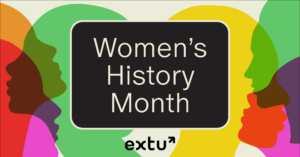Study after study demonstrate the benefits of adopting a corporate health and wellness program. Analyzing this information and specific workforce trends, Kansas City, Missouri employers took action.
Local Kansas City companies developed a collaborative project that allowed them to see the benefits connected with employee incentive programs first hand. In a recent press release company representatives announced the final results of the Kansas Collaborative project, $11 million in savings.
The project, led by the non-profit Mid-American Coalition on Health Care (MACHC), involved the monitoring of a number of local businesses. Those companies participating in the project provided a variety of wellness strategies to their employees and families, such as:
- Providing easily accessible and more abundant health and wellness information
- Early detection and treatment of chronic illnesses
- Supporting healthy diets and lifestyles
- Engaging employees in taking action to help reduce their health risks
Involving 15 participating employers, the three-year value based benefit project consisted of around 400,000 Kansas City-area workers and their dependents, and was supported by the National Business Coalition on Health (NBCH) and Pfizer Inc.
MACHC CEO and President Christine Wilson said, “The Kansas City Collaborative employers are to be commended for recognizing the importance of investing in the health and well-being of their employees and making benefit design decisions based on data.” She added that by using a value-based strategy to health benefit structures, the group participants were better able to “address worker health and productivity while also lowering overall health care costs.”
The collaborative employers all revamped the structure of their benefit programs to create incentives that would produce desired behaviors leading to enhanced employee health. Each company custom tailored its benefits program to boost participant engagement and motivate employees to adopt healthy lifestyle practices.
The final project results consisted of nine employers and 56,000 workers, and findings included:
- As a direct result of a decrease in chronic illness costs there was an estimated saving of $194 per worker.
- One hundred percent initiated healthier lunch and vending machine choices
- Sixty percent initiated a ‘no co-pay’ policy for preventive care treatment
- Sixty percent initiated a ‘no co-pay’ policy for medication for those participating in company offered chronic disease management programs
- Fifty percent reduced health insurance premiums for workers who engaged in specific program features
JE Dunn Construction Company’s vice president and director of Compensation & Benefits Stephen Best said, “A valuable result of this project for us was the ability to pull together and interpret our own data, as well as gain insight into what other employers were doing.” This information allowed the company to work closer with their vendors in developing effective benefits that “removed barriers for things like preventive services and encouraged engagement in wellness activities.”
Among the most popular employee incentives are prepaid cards. Incentive marketing firm Young American conducted a recent survey that showed 46 percent of human resource executives take advantage of prepaid cards as part of their reward programs.



